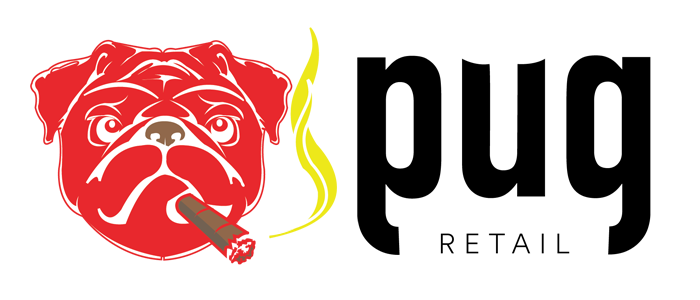Have you ever wondered how to get your small business noticed in the local market?
Imagine your favorite neighborhood shop. What makes it stand out? Likely, the owner has cleverly utilized local SEO optimization to attract customers who are nearby and actively looking for their products or services. In the digital age, this is not just a good idea but essential for survival.
Understanding Local SEO Optimization
Local SEO is the practice of optimizing your online presence to attract more business from relevant local searches. This involves tailoring your marketing efforts to be more relevant to your immediate geographic area. So, if you’re a small business, let’s break this down so you can understand how to implement effective local SEO strategies.
Why Local SEO Matters
Why should you care about local SEO? Simple – it’s what connects your business with nearby customers who are eager to make a purchase. When someone searches for “coffee shops near me,” the results that pop up are typically those that have optimized for local searches. This is your opportunity to grab the attention of potential customers in your area.
The Key Components of Local SEO
Effective local SEO is built on a foundation of several key components. Understanding these will help you fine-tune your online presence.
| Component | Description |
|---|---|
| Google My Business | Essential for managing your online presence. |
| Local Keywords | Using location-based keywords in your content. |
| On-page SEO | Crafting your website to be SEO-friendly. |
| Reviews and Ratings | Building your reputation through customer feedback. |
| Local Listings | Ensuring consistent information across directories. |
By understanding these components, you’ll be better equipped to develop a strategy that works for you.
Google My Business
Setting up your Google My Business profile is one of the first steps you should take in local SEO optimization. This free tool gives you control over how your business appears in Google searches and Google Maps.
Creating Your Profile
To create your Google My Business profile, start by visiting the official website. Follow the prompts and fill in your business information, including your name, address, phone number, and hours of operation. Accurate and consistent information helps Google trust your profile and ranks you higher in local search results.
Optimize Your Profile
Once your profile is set up, there are several ways you can optimize it:
- Add Photos: High-quality images make your listings attractive.
- Post Updates: Regular posts keep customers engaged and informed.
- Include Services: List the services or products you offer to attract interest.
Encourage Customer Reviews
After optimizing your profile, start encouraging customers to leave reviews. Positive reviews can significantly boost your visibility and credibility. Potential customers often read reviews before deciding where to shop, so generating good feedback is crucial.
Local Keywords
Using the right keywords is fundamental to improving your local SEO. Keywords are the phrases your potential customers search for. By including localized phrases in your content, you make it easier for Google to connect you with those looking for what you have to offer.
Keyword Research
To find local keywords, consider using tools like Google Keyword Planner or Ubersuggest. Look for keywords that are relevant to your business and include geographic terms. For instance, if you run a bookstore, search for “independent bookstore in [Your City].”
Implementing Keywords
Once you’ve identified local keywords, implement them in various parts of your online content:
- Website Content: Include them naturally in your website text.
- Meta Tags: Don’t forget your meta titles and descriptions.
- Local Listings: Make sure your business name, address, and phone number include relevant keywords when appropriate.
By using local keywords correctly, you can increase your chances of appearing in search results for those essential local queries.
On-page SEO
On-page SEO refers to the optimization of individual web pages in order to rank higher and earn more relevant traffic. This includes both the content and HTML source code of a page.
Content is Key
Your website’s content should clearly explain what your business offers. Including local keywords naturally throughout this content is essential. Not only should it engage visitors, but it should also tell Google what your page is about.
URL Structures
Friendly URLs also impact local SEO. Ensure that your URLs contain relevant keywords. For example, https://bighairydog.com/customer-center/point-of-sale-hardware/ This URL structure not only informs visitors about the content but also helps in search engine ranking.
Header Tags
Using header tags (H1, H2, H3) breaks down your content for search engines and users. They provide structure to your content and can highlight important information.
Reviews and Ratings
Customer feedback is vital to local SEO optimization. Online reviews influence not only how users perceive your business but also how Google ranks your website in local searches.
The Importance of Reviews
Online reviews create trust. A high number of positive reviews can significantly enhance your business’s online reputation. Did you know that a majority of people trust online reviews as much as personal recommendations? This speaks volumes about their power.
Responding to Reviews
It’s important to actively respond to reviews, both positive and negative. For positive reviews, a simple thank you goes a long way. For negative reviews, addressing the concern gracefully can turn a dissatisfied customer into a loyal one. This responsiveness can also be beneficial for your local SEO.
Local Listings
Apart from Google My Business, listing your business on other directories can further enhance your local SEO efforts. Each listing is another avenue for your business to be found.
Consistency Across Listings
Consistency is crucial when creating local listings. Ensure that your name, address, and phone number (often referred to as NAP) are the same across all platforms. Inconsistencies can confuse customers and search engines alike.
Registering with Relevant Directories
Consider registering with local directories, Yelp, Yellow Pages, Bing Places, and other platforms relevant to your industry. Each listing can help solidify your presence in the local market.
Leveraging Local Content
Creating content that resonates with your local audience can boost your local SEO efforts. This includes writing blog posts, articles, or guides that cater specifically to the local community.
Blogging for Local Audiences
Starting a blog that focuses on local events or news can draw in readers who live in your area. This can be a fun way for you to engage with your community while improving your SEO.
Local Partnerships
Collaborating with other businesses in your area can broaden your reach. Whether it’s a co-hosted event or a joint promotional effort, such partnerships can enhance your credibility and visibility.
Mobile Optimization
Did you know that a significant amount of local searches are conducted on mobile devices? Ensuring your website is mobile-friendly is essential for capturing these users.
Responsive Design
A responsive design ensures that your website adjusts beautifully to any screen size, making it accessible to all users. This can enhance user experience and improve your SEO.
Page Load Speed
Page load speed is another factor that can affect your mobile users. Ensure that your site loads quickly; otherwise, users may bounce away before they even see what you have to offer.
Utilizing Social Media
Social media platforms can also support your local SEO efforts. Engaging with your community via social media can enhance your visibility and direct traffic to your website.
Building a Social Media Presence
Having a presence on platforms like Facebook, Instagram, and Twitter can create brand awareness among local audiences. Post updates, engage with followers, and share local events.
Leveraging User-Generated Content
Encourage your customers to share their experiences with your products or services on social media. User-generated content can increase your visibility, as users often share their posts with their circles.
Performance Monitoring
Just like any marketing strategy, monitoring the performance of your local SEO efforts is crucial. Tracking your progress can help you identify what works and what doesn’t.
Utilizing Analytics
Google Analytics and Google Search Console are great tools to help you monitor your website’s performance. These platforms can provide insights into your website traffic, bounce rates, and search queries that lead visitors to your site.
Making Adjustments
Based on your findings, be prepared to make adjustments to your strategy. Local SEO isn’t static; it requires ongoing effort and adaptation to optimize performance continually.
The Benefits of Local SEO
Investing time and energy into local SEO can provide your business with numerous benefits, especially as a small business owner.
Increased Visibility
By optimizing for local SEO, your business will appear in local searches and Google Maps, increasing visibility and driving more foot traffic to your location.
Higher Conversion Rates
Visitors who find you through local searches are often ready to make a purchase, which can lead to higher conversion rates.
Lower Marketing Costs
Since local searches are more targeted, you can achieve better results without the need for extensive ad spend.
In Conclusion
Through effective local SEO optimization, your small business has the potential to flourish in the competitive market. Remember, consistency and engagement are keys to winning in this arena. If you’re looking for the right tools for your business, consider leveraging those offered by pugretail.com, our specialized POS system designed specifically for small businesses.
With over 30 years of providing retailers with POS support through our parent company, Bighairydog.com, you can trust that the right systems are in place to help you succeed. As you implement local SEO strategies, keep track of your results, and don’t hesitate to seek support where necessary. Your local customers are out there – let’s help them find you!

